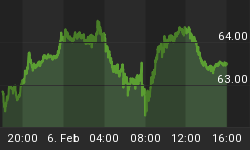The term "bubble" is thrown around a lot. It is especially used by analysts that do not understand why the price of something is rising. If an analyst failed to forecast the rising price, it must be a bubble. Maybe yes, maybe no. Bubbles have three characteristics. Importantly, bubbles are built on (1)a widely accepted consensus forecast of (2)rising price (3)financed by debt. Such would aptly describe the global housing bubble which has burst. It would also be an apt description of developments in the paper oil market. Only in part does it explain the price developments in Agri-Food. While paper commodity prices have no doubt benefited from margin financed speculators, fundamental changes are also in play. Those changes are not being recognized in the analytical community because they persist in maintaining a "factory mentality." Market strategists continue to await a supply response in Agri-Food. However, as this week's chart shows, the size of the Agri-Food "factory" is shrinking.

As the chart shows, the acreage of U.S. farm land is shrinking. Same is true for China, and much of the rest of the world. Higher Agri-Food prices may dampen the negative slope of the trend. But, the longer term degradation of global farm land is not being reversed. Whatever supply response that might occur will in part be thwarted by the shrinking "farm factory." Revenues going to the Agri-Food sector must rise sufficiently to maintain the size of the Agri-Food "factory." Hopes for another Green Revolution abound. However, the only Green Revolution likely in the next decade is the avalanche of green paper($s) descending on the global Agri-Food sector. Will your portfolio benefit from the current Green$ Revolution?
AGRI-FOOD THOUGHTS are from Ned W. Schmidt,CFA,CEBS, publisher of Agri-Food Value View, a monthly exploration of the Agri-Food grand cycle being created by China, India, and Eco-energy. To review a recent issue, write to agrifoodvalueview@earthlink.net.















